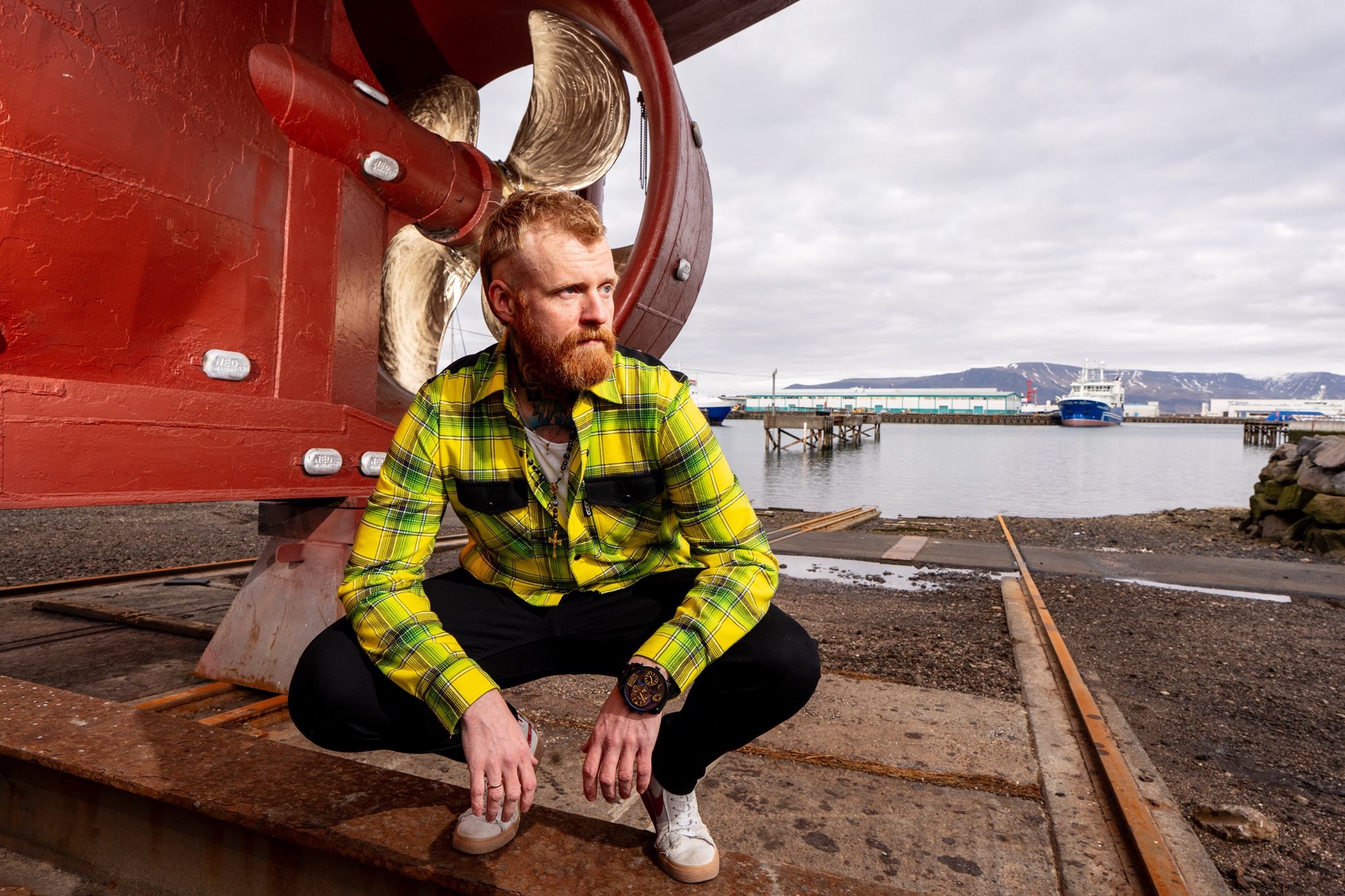
The Icelandic artist ODEE (who has changed his name from Oddur Eysteinn Friðriksson) has lost his request to appeal against the fishing company Samherji regarding intellectual property infringement, malicious falsehood and passing off.
This is a very disappointing ruling that continues to illustrate the power of big business to squash criticism and debate. Artists should have the freedom to comment on and present works that engage with the public interest. This hearing at the High Court has again shown that the property rights of Iceland’s largest fishing company – and major supplier to Britain’s fish and chips industry – have triumphed over the right to artistic expression.
Previously 27 whistleblowing and free expression organisations, including the Whistleblowing International Network (WIN) and Protect signed a letter of support to rally behind ODEE. Freedom of expression includes the right for the public to know about corruption and abuses of power and the right for whistleblowers to be protected for letting us know.
In a statement released following the judgment, ODEE said:
The artwork “We’re Sorry” takes the form of a fictional apology from Samherji for its involvement in the Fishrot scandal and a pledge to provide reparations to the people of Namibia. Created as a mural and media art piece it uses an approach, often called ‘culture-jamming,’ to challenge abuses of power by imagining a positive alternative. The work explores an alternative version of corporate responsibility and engages in a topic that has dominated news and cultural narratives in Iceland and Namibia. ODEE says he created the mural and a media art piece to engage the public in a vital discussion of the limits of corporate power in today’s world.
ODEE has already rejected an offer to pay a nominal fee of £1 to hand over control of the digital artwork and not to re-create any similar work in the future. He likened the offer to being told to “shut up and go away.”
The Fishrot scandal broke publicly in early 2019 when a cache of documents was leaked to Wikileaks revealing bribery at the highest levels of government in Namibia. The information was provided by the whistleblower and former employee of Samherji in Namibia, Jóhannes Stefánsson. He was already cooperating with the authorities in Iceland and Namibia at the time and later in 2019, ten high-level officials – including the former Ministers of Justice and Fisheries – were charged, nine of whom remain in jail. The trial was due to start in 2023 but has been repeatedly delayed by various applications from the defendants, most of which have been summarily denied.
The criminal investigation launched in Iceland into Samerjhi’s conduct is still ongoing. New information reported in October 2024 appears to undermine Samherji’s leadership claims that they had no idea of what was going on and insinuating that it was all down to one rogue employee, namely the whistleblower.
Freedom of expression links whistleblowers and artists – individuals must be protected from the powerful who wish to stop them speaking up. And in this example of cross border corruption, the case of whistleblower Jóhannes Stefansson and ODEE are inextricably linked. They both deserve our support as they shine a light on how power works against the public interest and the importance of raising awareness and engagement with its legal, social and moral ramifications.
Despite this latest development in ODEE’s case, he has made it clear he intends to appeal to a higher court – and to take his fight all the way to the European Court of Human Rights if required – to recognise the value of his art as a social critique.
* The Whistleblowing International Network brings together the world’s leading experts to support whistleblowers and advocate for their protection. Its 38 non-profit membership organisations span 25 countries, collaborating across borders and building up capacity to hold power to account in defence of democratic accountability and the public interest.
